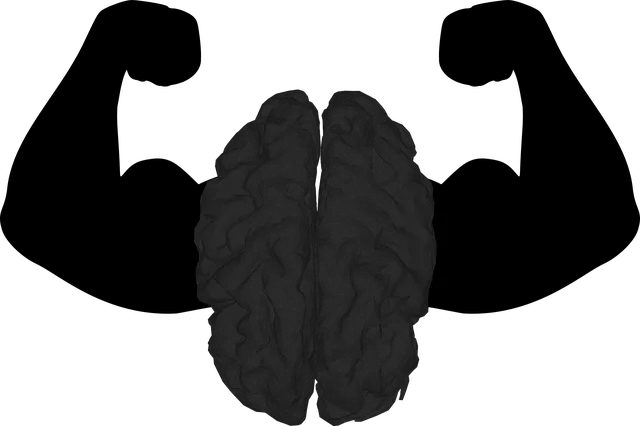Kaiser Permanente Behavioral Health Services in Centennial prioritizes resilience through their RFM (Resilience, Flexibility, Mastery) program, empowering individuals to cope with life's challenges. This holistic approach, focusing on self-care and compassion, leads to improved mental well-being and reduced stigma. Continuous evaluation using KPIs and client feedback ensures the program's effectiveness, allowing for adaptations like incorporating Emotional Well-being Promotion Techniques. Regular reassessments within Kaiser Permanente behavioral health services reviews Centennial highlight their commitment to fostering a resilient community.
“Resilience is a key component of mental well-being, especially within healthcare settings. This article explores RFM (Resources, Factors, and Coping) exercises as an effective tool for building resilience at Kaiser Permanente Behavioral Health Services in Centennial. We delve into the implementation process, success evaluation strategies, and continuous improvement methods inspired by their positive reviews. By understanding RFM’s role, we can enhance mental fortitude among healthcare professionals, ultimately improving patient care.”
- Understanding RFM and Its Role in Resilience Building
- Implementing RFM Exercises at Kaiser Permanente Behavioral Health Services in Centennial
- Evaluating Success and Continuous Improvement Strategies
Understanding RFM and Its Role in Resilience Building

Resilience is a critical component of overall well-being, especially within the context of behavioral health services. Kaiser Permanente Centennial, renowned for its comprehensive healthcare offerings, recognizes this and has integrated Resilience, Flexibility, and Mental Adaptability (RFM) principles into its behavioral health programs. RFM focuses on empowering individuals to navigate life’s challenges with greater equanimity, a key aspect in managing mental illness and preventing burnout.
The implementation of RFM techniques within Kaiser Permanente behavioral health services reviews aims to foster a culture that reduces the stigma associated with mental illness. By teaching clients practical tools for resilience building, the program seeks to enhance their ability to cope with stress, adversity, and traumatic events. This proactive approach not only contributes to improved individual outcomes but also supports broader Mental Illness Stigma Reduction Efforts in the community.
Implementing RFM Exercises at Kaiser Permanente Behavioral Health Services in Centennial

At Kaiser Permanente Behavioral Health Services in Centennial, implementing RFM (Resilience, Flexibility, and Mastery) exercises has been a game-changer in fostering self-care practices among patients. These exercises, tailored to individual needs, help individuals cultivate compassion towards themselves and others, which is crucial for building inner strength development. The program encourages patients to navigate life’s challenges with resilience, enhancing their ability to cope with stress and adversity.
Through a variety of compassionate cultivation practices, RFM exercises at Kaiser Permanente Behavioral Health Services reviews Centennial aim to empower individuals to find mastery over their mental health. This holistic approach goes beyond traditional therapy by integrating self-care into patients’ daily routines, enabling them to build lasting resilience. The result is a more balanced and fulfilling life, where individuals can face challenges with newfound confidence and inner strength.
Evaluating Success and Continuous Improvement Strategies

Evaluating success is a critical component of any resilience-building initiative, especially within behavioral health services like those offered by Kaiser Permanente Centennial. By examining outcomes and client feedback, healthcare providers can assess the effectiveness of implemented exercises and strategies. This process involves collecting quantitative data on key performance indicators (KPIs) such as reduction in anxiety levels, improved emotional regulation, or enhanced coping mechanisms. Additionally, qualitative feedback from clients through reviews and surveys provides valuable insights into their experiences with the Emotional Healing Processes and Empathy Building Strategies employed.
These evaluations allow for continuous improvement by identifying areas that require refinement or additional support. For instance, if client testimonials highlight challenges in applying learned techniques in daily life, healthcare professionals can adapt and incorporate more practical Emotional Well-being Promotion Techniques. Regular reassessments ensure that the program remains relevant and beneficial, fostering a culture of resilience within the community served by Kaiser Permanente behavioral health services reviews Centennial.
The implementation of RFM exercises at Kaiser Permanente Behavioral Health Services in Centennial has shown promising results, enhancing resilience among patients and staff. By understanding RFM’s role in building mental fortitude, these healthcare providers have successfully integrated a powerful tool for navigating life’s challenges. This approach, as evidenced by positive reviews from the Centennial community, can serve as a model for other behavioral health services, fostering not only individual resilience but also creating a more supportive and adaptable environment within healthcare institutions. Continuous improvement strategies, such as regular evaluation and adaptation, ensure that RFM remains an effective and relevant component of mental health support.






